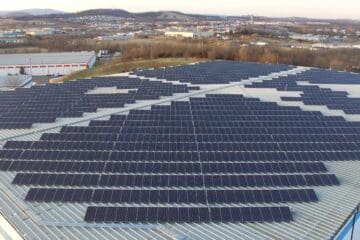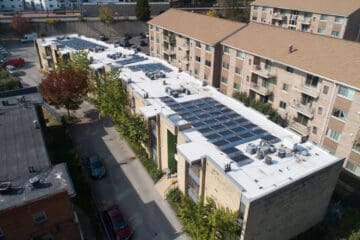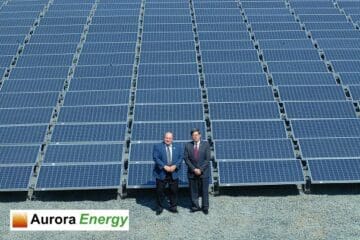Virginia is set to join dozens of other states with their own Community Solar program
In a continued drumbeat towards a swift green energy transition, the state of Virginia puts a community solar program in place set to roll out in 2023. The program was outlined in Senate Bill 629, a piece of legislation championed by State Senator Scott Surovell (D) representing parts of Fairfax, Stafford & Prince William Counties. After researching other community solar programs in states across the country, Surovell put the push on for the legislation in the 2020 session. It calls for a subscriber-type program where Virginia residents in the Dominion service area can sign up for clean energy sourcing through community solar arrays owned by third parties.
The Virginia program will initially be capped at a total of 150 MW capacity of deployed solar for the subscriber network, with the goal of 30% of subscribers being low- or middle- income. (The definition of low-income as defined in the legislation means households with income levels of less than 80% of the median income within their locality.) If the 30% is met, the program may allow another 50 MW of capacity.
Some other requirements include: 40% of subscribers to any given facility must utilize 25 kW usage or less, each facility must be located on a single land parcel within Dominion service area, and the maximum size of each facility is 5 MW.
But there are a few trickier bumps in the road ahead, as the program navigates through the unique administrative infrastructure of Virginia. There are administrative agencies in Virginia that other states don’t have. The State Corporation Commission of Virginia, for example, is a regulatory body within the Virginia government that has oversight authority over a vast amount of economic and public service entities including utilities. The Commission will be making a determination over some of the questions involving the new community solar program, including minimum ratepayer charges for subscribers of the program as well as bill credit roll overs for accrued usage (as long as the credit amount does not exceed the bill amount). The language in SB 629 itself leaves openings in the text allowing the Commission to determine parameters in a number of different sections.
Southern Environmental Law Center and Appalachian Voices are among some of the organizations advocating for policy solutions that will help make the new community solar program not just viable, but successful.
Just a few years ago, Virginia was behind in the renewable energy game. But between 2017-2019, solar PV deployment tripled in the state. In 2019, Governor Northam signed an Executive Order stating that Virginia’s energy sourcing must be 100% carbon-free by 2050. Since then, an avalanche of renewable energy legislation has passed through the Virginia General Assembly, putting renewables on the map, and aiming to reduce greenhouse gas emissions for the state.
#VAcommunitysolar
#Virginiacleanenergy
Photo credit: Derrick Brooks



